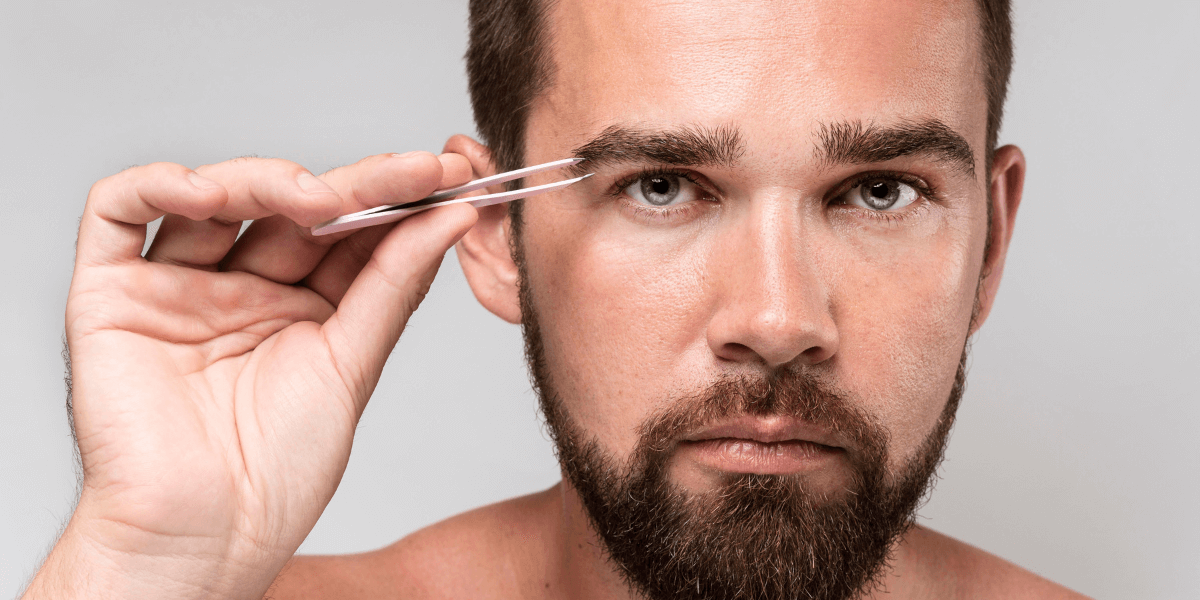


Many people want to improve their facial appearance and achieve thicker, well-defined eyebrows. So, many individuals seek solutions to address sparse or uneven eyebrows and attain beautifully arched, full brows. Thankfully, the cosmetics sector provides several solutions, with eyebrow hair transplant and microblading hair transplant standing out as the top rivals. In this blog, we'll figure out whether eyebrow transplant or microblading is the better option for you or your loved ones.
Here is an overview of both the procedures–
Eyebrow transplants are surgical techniques designed to boost and repair eyebrow hair density, giving patients fuller, better-defined brows. Below is a quick overview of its features–
Surgical treatments are used to restore or improve eyebrow hair density.
This procedure entails harvesting hair follicles from the donor region and transplanting them into the eyebrow region.
The procedure can take a few hours and may consume more than one session for optimal results.
Eyebrow transplants are usually considered to be a permanent cure.
A non-surgical cosmetic procedure known as microblading treatment is a minimally invasive, semi-permanent makeup procedure. Here are some of the primary characteristics of microblading–
Specialized hand-held equipment with tiny needles is used to create microblades. These needles make minute punctures in the skin, which are subsequently manually filled with color.
The process is rather quick, typically taking two hours.
The effects of microblading are semi-permanent and can last for one to three years. Touch-up procedures are required regularly to keep the look.
Depending on the kind of technology employed and the amount of downtime, both procedures differ considerably. Here is a clear overview—
There are various steps to the eyebrow hair transplant —
A surgeon meets with patients to discuss goals and determine eligibility.
The follicles are harvested from a donor area, often the scalp's back, under local anesthesia.
The retrieved follicles are meticulously divided into separate grafts.
Tiny incisions are created in the brow area, following natural hair growth patterns.
The prepared follicular grafts are expertly inserted into the incisions by the surgeons.
Scabbing and swelling are initially seen when the transplanted area begins to recover over weeks.
The final results take months, providing natural, permanent, and larger brows.
Regular follow-up visits confirm that the transplanted area recovers appropriately.
There are various steps to the brow transplant procedure—
Discussion about desired brow color and shape with a trained professional.
To lessen discomfort, clean and numb the region around the eyebrows.
The technician ensures symmetry with a pencil by outlining the ideal brow shape.
The technician deposits color into the upper layer of the skin in the form of small, hair-like strokes using hand-held equipment with tiny needles.
Application of the pigment is followed by a brief period of absorption.
After a few weeks, a touch-up visit may be required to improve the form and color.
Avoid excessive dampness and sunlight while letting brows heal for a few weeks.
Experience natural-looking, realistic,, and semi-permanent eyebrows for up to 18 months. See Also: Causes of Eyebrow Hair Loss and Ways to Prevent It
The objectives and outcomes patients can anticipate from eyebrow transplants and microblading hair transplants differ significantly. The steps are taken to address particular problems. Here is a brief—
Individuals with thin or sparse brows usually seek brow transplants due to genetic causes, over-plucking, or medical issues. The goal is to create broader, thicker eyebrows that look entirely natural.
Microblading is a semi-permanent makeup method for people who want to improve their brows' form, definition, or fullness. The purpose of microblading is to provide the appearance of thicker, more defined brows.
Here is what the processes have in common—
Here are the people suitable to adopt the technique—
Eyebrow hair transplants are appropriate for people with thin or sparse brows due to heredity, over-plucking, or medical disorders. Ideal candidates have healthy donor hair and look for a long-lasting remedy to get larger brows.
Microblading is appropriate for people who want to improve the contour and definition of their brows. It offers a semi-permanent alternative and is perfect for people seeking to alter their brow's appearance without committing long-term.
Take note of the below complications—
Risks may include scarring, infection, or graft failure. Complications can involve uneven hair growth or unnatural appearance if not performed by a skilled surgeon.
Risks include infection, allergic reactions to pigments, or color fading. Complications can include asymmetry or undesired pigment changes if not done correctly. See Also: Experiencing Eyebrow Thinning? Here’s What You Need to Know
When you talk to others, your eyes and eyebrows play a big role. Even a small eyebrow movement can show how you feel without words. What to choose between Eyebrow Transplant and Microblading, the choice ultimately depends on your preferences, needs, and desired outcome. Each method offers unique benefits, providing a personalized solution for achieving the perfect eyebrows.
Looking for a top-tier eyebrow hair transplant in Maryland? Mane Center for Advanced Hair Restoration is your destination for expert solutions! Led by Dr. Douglas Burka, we offer dedicated treatments to turn your breaks into flourishing brows! Book your appointment today and let us refine your aesthetics!